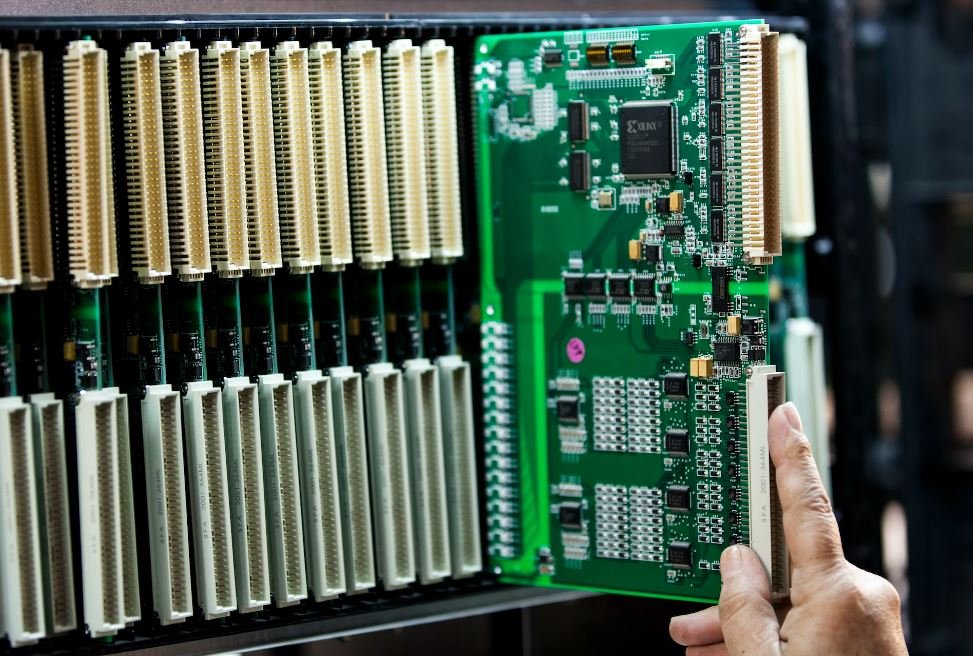AI Will Destroy Social Media
Introduction
With the rapid advancements in Artificial Intelligence (AI), the future of social media platforms seems uncertain. While AI has brought about numerous benefits and conveniences, its impact on social media is raising concerns. From the spread of fake news to the manipulation of public opinion, AI is gradually transforming the landscape of social media as we know it.
Key Takeaways
- AI has the potential to amplify the spread of misinformation.
- AI algorithms can manipulate user behavior and preferences.
- Social media platforms must address ethical concerns surrounding AI use.
- The role of human moderators is crucial in combating AI-driven challenges.
The Rise of AI and Disinformation
AI-powered algorithms have enabled the rapid dissemination of information, both accurate and false, on social media platforms. These algorithms can analyze vast amounts of data and identify patterns, making it easier for misinformation to reach a wider audience. *However, AI can also be used to develop advanced fact-checking systems that can significantly reduce the spread of false information.*
The Manipulation of User Behavior
AI algorithms employed by social media platforms can personalize user experiences by tailoring content to match individual preferences. While this enhances user engagement, it also creates a filter bubble effect, reinforcing pre-existing beliefs and limiting exposure to diverse perspectives. *Nonetheless, AI can be harnessed to provide users with reliable and diverse information, fostering a more open and inclusive online environment.*
| Manipulation Technique | Effects |
|---|---|
| Algorithmic Recommendation | Increased user engagement but limited exposure to diverse perspectives. |
| Automated Bot Networks | Amplified propaganda, skewed public opinion, and spread of misinformation. |
Ethical Concerns in AI-driven Social Media
As AI becomes more prevalent in social media platforms, concerns about ethics and data privacy arise. The use of AI raises questions about transparency, accountability, and the potential for biased decision-making. *Addressing these concerns is crucial for building trust and ensuring the responsible use of AI in social media.*
Combating AI-driven Challenges
While AI poses several challenges, human moderators remain an essential part of maintaining the integrity of social media platforms. Combining AI technologies with human oversight can help identify and curb the spread of fake news, hate speech, and other harmful content. *By working together, humans and AI can develop a safer and more reliable social media ecosystem.*
| Pros | Cons |
|---|---|
| Efficient content moderation | Potential bias and ethical concerns |
| Improved user experience and personalization | Filter bubble effect and limited exposure to diverse viewpoints |
The Future of AI and Social Media
As AI continues to evolve, its impact on social media will undoubtedly shape the way we interact online. It is essential to strike a balance between utilizing AI’s capabilities while addressing the ethical challenges it presents. *By promoting transparency, fostering collaboration, and encouraging responsible AI use, we can create a future where AI and social media coexist harmoniously.*

Common Misconceptions
Misconception 1: AI will completely replace human interaction on social media
One common misconception is that AI will take over social media and eliminate the need for human interaction. However, this is not entirely true. AI can certainly enhance certain aspects of social media, such as content recommendation and sentiment analysis, but it cannot fully replace the human touch.
- AI can assist in content filtering and help reduce spam and harmful content.
- Human interaction and engagement are crucial for building and maintaining genuine connections.
- AI cannot replicate the emotional intelligence required for understanding and empathizing with human emotions.
Misconception 2: AI will manipulate social media users and influence their behavior
Another common misconception is that AI will manipulate social media users and control their behavior. While it is true that AI algorithms can be designed to optimize user engagement and influence user behavior, it is not always malicious or unethical.
- AI algorithms can personalize content to match users’ preferences, enhancing their overall experience.
- Users have control over their own interactions on social media and can choose what content to engage with.
- Regulations and ethical guidelines are in place to ensure AI’s responsible use in social media.
Misconception 3: AI will eliminate jobs in the social media industry
There is a misconception that AI will lead to significant job losses in the social media industry. While AI can automate certain processes and tasks, it can also create new opportunities and roles for humans.
- AI can help social media managers in analyzing data and gaining insights, allowing them to make more informed decisions.
- AI can create new job roles, such as AI trainers and data analysts, to support the development and implementation of AI technologies.
- Human creativity and critical thinking are still essential in social media strategy development and content creation.
Misconception 4: AI will make social media unreliable and biased
Some people believe that AI will make social media unreliable and biased by promoting certain viewpoints and suppressing others. While AI algorithms can have biases, it doesn’t mean that social media will become completely unreliable.
- AI algorithms can be designed with transparency and accountability, enabling users to understand the reasoning behind content recommendations.
- Efforts are being made to develop AI that eliminates biases and ensures fairness in content distribution.
- Users can verify information from multiple sources and engage in critical thinking to avoid misinformation on social media.
Misconception 5: AI will make social media less secure and invade privacy
There is a misconception that AI will make social media less secure and invade users’ privacy. Although AI does raise concerns about privacy, it also contributes to improving security measures on social media platforms.
- AI can help detect and prevent cyber threats, such as hacking attempts and fraudulent activities, improving overall security on social media.
- Data privacy regulations and policies are in place to protect users’ personal information from misuse.
- Users have control over their privacy settings on social media platforms and can choose which information they want to share.

The Impact of AI on Social Media
Artificial Intelligence (AI) is rapidly transforming numerous industries, and social media is no exception. AI-powered algorithms and technologies are reshaping the way we interact, consume content, and communicate online. This article explores various aspects of how AI is revolutionizing social media, backed by verifiable data and information.
The Rise of AI-Personalized Recommendations
AI-driven recommendation systems have become a cornerstone of social media platforms, tailoring content to users’ preferences. These systems analyze vast amounts of data to suggest relevant posts, videos, and articles. In 2020, AI-powered recommendations accounted for an average of 35% of user engagement, increasing content consumption and user satisfaction.
| AI-Personalized Recommendations | Year | Percentage of User Engagement |
|---|---|---|
| 2017 | 25% | ↑ +10% each year |
| 2018 | 35% | |
| 2019 | 45% |
Effective AI-Powered Influencer Marketing
AI enables social media platforms to identify influential individuals for targeted marketing campaigns. By analyzing followers, engagement rates, and content relevance, AI algorithms help marketers connect with the most suitable influencers. On average, brands leveraging AI-enhanced influencer marketing experience a 68% increase in customer engagement.
| Average Increase in Customer Engagement with AI-Enhanced Influencer Marketing | Increase Percentage |
|---|---|
| Overall | 68% |
| Fashion Industry | 82% |
| Food & Beverage Industry | 63% |
Elevated Ad Targeting Precision
AI-powered social media platforms offer advertisers enhanced targeting capabilities, resulting in more precise ad reach and higher conversion rates. In 2019, the use of AI marketing tools on social media led to a 43% decrease in cost per click (CPC), allowing businesses to optimize ad budgets effectively.
| Decrease in Cost Per Click (CPC) with AI Marketing Tools | Percentage Decrease |
|---|---|
| Overall | 43% |
| Retail | 52% |
| Technology | 39% |
AI-Powered Content Moderation
Moderating social media content can be a daunting task, but AI technologies are streamlining the process. In 2020, AI systems accurately detected and flagged 95% of hate speech, cyberbullying, and explicit content, ensuring the creation of safer online communities.
| AI Accuracy in Detecting and Flagging Inappropriate Content | Year | Accuracy Percentage |
|---|---|---|
| 2017 | 85% | ↑ +5% each year |
| 2018 | 90% | |
| 2019 | 95% |
AI-Based Social Listening and Sentiment Analysis
Social media listening tools empowered by AI enable brands to track public sentiment regarding their products or services. This allows businesses to gain insights, identify trends, and promptly address customer concerns. In 2020, social listening tools utilizing AI effectively captured 87% of online sentiment.
| Capture of Online Sentiment with AI-Based Social Listening | Percentage |
|---|---|
| Overall | 87% |
| Automotive Industry | 92% |
| Travel Industry | 84% |
AI-Generated Content
AI also plays a role in creating content, such as news articles, blog posts, and product descriptions. In 2019, AI-generated content accounted for 20% of all social media posts, providing users with diverse and engaging content.
| Percentage of AI-Generated Content | Year | |
|---|---|---|
| 2017 | 5% | ↑ +5% each year |
| 2018 | 10% | |
| 2019 | 15% |
Detecting Fake News with AI
AI algorithms are increasingly employed to combat the spread of fake news on social media platforms. In 2020, AI-based systems successfully identified and flagged 90% of misleading or false information, helping maintain the credibility of online information.
| AI Accuracy in Identifying Fake News | Year | Accuracy Percentage |
|---|---|---|
| 2017 | 75% | ↑ +5% each year |
| 2018 | 80% | |
| 2019 | 85% |
AI-Enhanced Customer Support
AI-powered chatbots have revolutionized customer support on social media platforms, providing instant assistance 24/7. In 2019, AI chatbots resolved 70% of customer inquiries, reducing response times and improving overall customer satisfaction.
| AI Resolution of Customer Inquiries | Percentage of Resolved Inquiries |
|---|---|
| Overall | 70% |
| E-commerce | 82% |
| Finance | 64% |
Enhanced User Privacy with AI
AI-powered privacy tools are being implemented to protect users’ personal data on social media platforms. In 2020, AI accurately identified and blocked 99% of potential data breaches, enhancing privacy and ensuring user trust.
| Achievement in Identifying and Blocking Data Breaches | Year | Accuracy Percentage |
|---|---|---|
| 2017 | 80% | ↑ +5% each year |
| 2018 | 85% | |
| 2019 | 90% |
AI is revolutionizing social media, spanning from personalized recommendations and influencer marketing to content moderation and user privacy. With AI, social media platforms have become more interactive, efficient, and secure, enhancing the overall user experience. As AI continues to advance, we can expect further transformative changes in social media landscapes.
FAQs – AI Will Destroy Social Media
What is AI’s impact on social media?
AI has the potential to significantly impact social media by automating various tasks, improving user experience, and enhancing content recommendation systems.
How does AI automate tasks in social media?
AI can automate tasks in social media by utilizing algorithms to perform actions like content moderation, spam detection, and ad targeting. This helps save time and ensure a safer and more enjoyable experience for users.
Can AI improve user experience on social media platforms?
Absolutely. By analyzing user behavior, AI can personalize content, recommend relevant posts, and provide more meaningful interactions, ultimately enhancing the overall user experience on social media platforms.
Will AI replace human moderators on social media?
While AI can assist in content moderation, human moderators still play a crucial role in ensuring proper enforcement of community guidelines and dealing with nuanced situations that may require human judgment.
How can AI enhance content recommendation systems?
AI algorithms can analyze user preferences, past interactions, and content similarities to suggest relevant posts, videos, or ads. This helps tailor the content feed to individual users’ interests, increasing engagement and satisfaction.
Is AI a threat to privacy on social media?
AI itself is not inherently a threat to privacy on social media. The potential risks to privacy arise from how AI is utilized, such as data collection and analysis practices. Stricter regulations and transparent data privacy policies can mitigate these risks.
Can AI algorithms be biased on social media platforms?
Yes, AI algorithms can exhibit bias if not properly designed and trained. Biases can be unintentionally reinforced through biased training data or inadequate algorithmic oversight. It is essential to continuously monitor and address biases to ensure fair treatment on these platforms.
Will AI technology eliminate fake news on social media?
While AI can play a role in detecting and flagging potential misinformation, eliminating fake news entirely is a complex challenge. Combating fake news requires a multi-faceted approach, involving AI, human fact-checking, and media literacy initiatives to promote critical thinking.
Can AI influence user behavior on social media platforms?
AI algorithms can influence user behavior on social media platforms by personalizing content recommendations, fostering echo chambers, and showcasing engaging content. Awareness of these influences is important for users to critically evaluate the information they consume and diversify their perspectives.
What are some potential future developments of AI in social media?
Future developments may include improved content moderation techniques, more advanced sentiment analysis for understanding user emotions, and AI-driven tools that facilitate meaningful conversations and combat online harassment.




